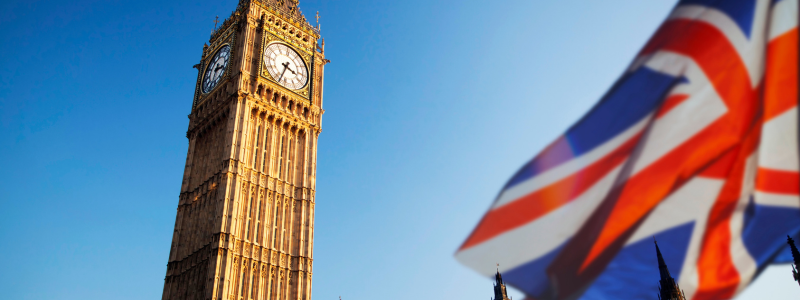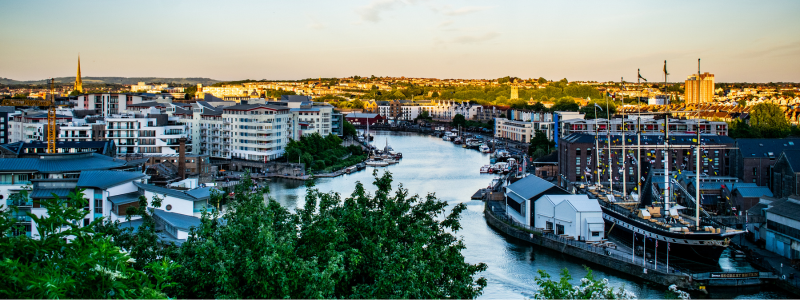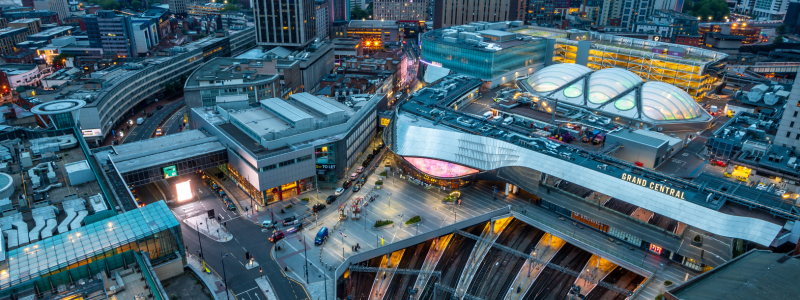Understanding The Cost Of Living In Different UK Cities
by Marsh Finance on Aug 8, 2024 3:11:53 PM
Key Summary
The impact of the cost of living crisis varies depending on where you live. We have taken a look at the cost of living in major UK cities.
London:
- Very high cost of living.
- £1,500 a month average rental price.
- £735,000 average house price.
- Expected salary of £60,000 needed to live.
Bristol:
- High cost of living.
- £30,000 salary needed to live.
Edinburgh:
- 48% cheaper to live than London.
- £3,900 monthly cost of living for a family.
Birmingham:
- 9% cheaper cost of living than Bristol.
- £420,000 average cost of a detached house.
Manchester:
- 68% cheaper than London.
- £400,000 average cost of a detached property.
Overall, Manchester is the cheapest city to live in on our list. The most expensive is of course London, with Bristol following closely behind.
In the United Kingdom, cities such as London, Manchester, Edinburgh, Birmingham, and Bristol each have their own unique characteristics and charm. However, they also differ significantly in terms of how much it costs to live there. Whether you’re thinking about moving, studying, or just curious, understanding the cost of living in these cities can be very helpful. This blog aims to compare these five cities, ranking them from the most expensive to the least expensive based on recent data for 2024. We’ll explore what makes each city distinct regarding living expenses, providing a clear guide for anyone looking to understand the financial aspects of living in these urban areas.
👉 London: The Capital’s Price Tag
👉 Bristol: The Cost of West Country Living
👉 Edinburgh: Living in Scotland’s Jewel
👉 Birmingham: Heart of the Midlands
👉 Manchester: Northern Powerhouse Costs
👉 UK Car Finance Solutions At Your Fingertips

London: The Capital’s Price Tag
As the capital of England and one of the most recognisable cities in the world, it is no surprise that London has a very high cost of living. The economic situation in England has impacted cities up and down the country, but London has felt it most. With fewer choices to buy property, rentals are accelerating in price. Compared to the year prior, private rental prices have risen by 6.8%, with average rental prices now up at £1,500 a month (ONS). Regarding price breakdown, public transport for one month can set you back above £180, with a gym membership coming in around the £55 a month mark (NUMBEO). Alcohol is steep, with the average price of one pint sitting pretty at £6.19, a significant increase in other areas of the country. With average house prices of £735,000 (Zoopla), London is an exceptionally expensive place to live, ranking higher than Milan, Amsterdam and Paris! In terms of property, a detached house will set you back over £1.2 million, a semi-detached or terraced property will cost you over £800,000, and a flat will require around £500,000 (Zoopla). These prices present a sizeable increase on other areas of the UK and emphasise the disparity in London living compared to the rest of the country. With an expected salary of £60,000+ needed to live in London, it tops our list for the most expensive places to live in the UK.

Bristol: The Cost of West Country Living
Although cheaper than London, Bristol ranks second on our list of the most expensive UK cities. On the surface, Bristol is around 30% cheaper than London but 10% more expensive than Manchester (LivingCost.org). House prices in Bristol are relatively modest, although still more expensive than in Manchester. A detached property costs upwards of £550,000, while a semi-detached costs around £400,000. A terraced house is priced at £380,000, and a flat is slightly cheaper at £329,000 (Zoopla). A monthly pass to ride on public transport is around £80, significantly more affordable than in London, whilst a gym membership is around £8 higher than a membership in Manchester (NUMBEO). Bristol is well-priced for a sunny, southern area of the country, and living there won’t completely diminish your household income. When average salary is factored into the general cost of living, which is the third highest in the UK at £30,000 (Think Plutus), living in Bristol may present the best value for money out of the cities in this list.

Edinburgh: Living in Scotland’s Jewel
Living in the Scottish capital is surprisingly cheap compared to the other cities in this list, ranking dead centre in our list. Compared to London, Edinburgh is around 48% cheaper to live (LivingCost.org), a massive contrast between the two capitals and a strong supporting factor for living in the Scottish capital. For a family living in Edinburgh, the cost of living per month is around £3,900 compared to £6,000 in London (LivingCost.org). Purchasing a property in Edinburgh is cheaper than London and fairly similar to Bristol. See a breakdown of property prices below:
- Detached: £530,000
- Semi-detached: £400,000
- Terraced: £380,000
- Flats: £270,000
(Zoopla)
Ranked as TimeOut magazine’s best city in the world in 2022, Edinburgh is iconic but not too expensive, making it a fantastic option if you want to make the most of your money whilst living in one of the best cities in the world.

Birmingham: Heart of the Midlands
The second-cheapest place to live on this list, Birmingham’s cost of living is much lower than London’s and even 9% cheaper than Bristol’s (LivingCost.org). Living in the Midlands presents financial benefits like more affordable housing, food expenses, and gym memberships. In terms of house prices, Birmingham provides substantial value for money. A detached house is priced around £420,000, with a semi-detached at £260,000. A terraced property is around £200,000, with a flat slightly higher at £205,000 (Zoopla). This is similar to Manchester, with the northern powerhouse just edging Birmingham to the cheapest housing on our list. Nevertheless, living in Birmingham is a great option, with strong transport links and a bustling city that earned it one of the top 100 best cities in the world in 2024 (World’s Best Cities). For the price, Birmingham is a great option to live in.

Manchester: Northern Powerhouse Costs
Manchester ranks as the cheapest city to live in on our list, with it being 68% cheaper than London! (LivingCost.org). All measures are significantly more reasonable in Manchester than in London, but the significant difference lies in property. The average price of a detached property in Manchester is just over £400,000, £800,000 less than in London. A semi-detached will set you back just under £300,000 on average, with a terraced flat priced at around £215,000 and a flat priced at £185,000 (Zoopla). In terms of eating out, a two-person deal is around £50, £15 less than the average for London, with beer nearly £1 cheaper up north, resting just under £5. A gym membership is also much more affordable, with the average membership setting you back £25, over half the price of a membership in London (LivingCost.org). Of course, with a lower cost of living, the average salary is somewhat lower than in London. The average salary for a London worker is £36,000 compared to £27,000 in Manchester (Think Plutus). This wage disparity isn’t a massive issue, with consumer prices in Manchester costing 17.7% less than in London (NUMBEO). As a major city of culture, Manchester could be a great option if you are looking for cheaper living combined with an iconic, bustling city experience.

UK Car Finance Solutions At Your Fingertips
With car supply up and down the country, Marsh Finance is the ultimate destination for your next car finance purchase. With competitive rates and tailored financial products that suit you, we are well-placed to get you on the road in your new car. Apply today using our easy-to-use form and, receive a decision the same day, and take the first step to your new vehicle.
Finance is subject to status.
- June 2025 (16)
- May 2025 (10)
- April 2025 (5)
- March 2025 (6)
- February 2025 (4)
- January 2025 (4)
- December 2024 (10)
- November 2024 (14)
- October 2024 (12)
- September 2024 (25)
- August 2024 (77)
- February 2024 (1)
- May 2023 (2)
- March 2023 (1)
- February 2023 (1)
- December 2022 (1)
- October 2022 (2)
- August 2022 (1)